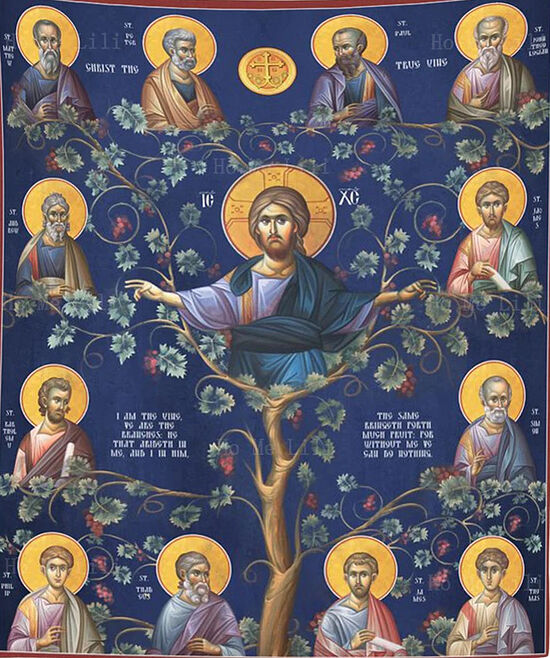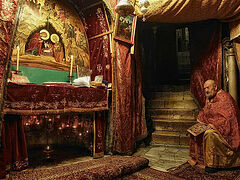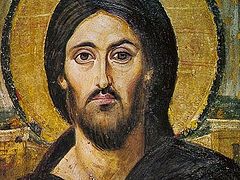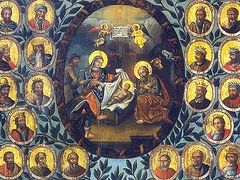From the mouth of the apostle and evangelist Matthew, we have heard the “Genealogy of Jesus Christ.” This seemingly dry Gospel reading expresses the idea of the kinship between God and man. According to the teaching of the Holy Scriptures, kinship with God is an indispensable characteristic of man, who is inseparably both “spirit” and “flesh.” This position is primary to man’s being, and it ceased to exist through the fault of man himself, the first Adam. Man himself was unable to return to this primary norm of life, and Christ comes to restore what has been broken. The current Gospel says that God the Creator, through His Son, has brought us closer to Himself. Today's Gospel says that God returns to man the dignity he has lost.
Is it not for this reason that the Church now calls us to meet the approaching feast of Theophany and the Nativity of Christ in penitential joy? Think, dear ones, is this not joy? The Creator Himself, when He took on our flesh, was not ashamed to call people like us His kinsmen, His brothers! He is not ashamed to call us His brothers, says St. Paul. Tell me, dear ones—many people are talking about the dignity of man today, but in the entire history of mankind, when and by whom was man so exalted as Christianity exalts him?
The feast of the Nativity of Christ is approaching. Remember, dear ones, about the Creator of the feast. Think about the fact that He came to you to adopt you to God the Father, so that you may become children of God, brothers of Christ. Prepare your hearts for the celebration with repentance, purity, gifts of love and mercy, so that the heart of each of you becomes a cradle in which our Savior Christ may lay down.
Are we all children of God, can we all call ourselves brothers of Christ? The apostolic reading that we heard today, listing the righteous ones of the Old Testament, the ancestors in the flesh of Jesus Christ, shows us by their examples how we must believe and live to be worthy to be called children of God. Here is Adam, who gives us an example of contrition and repentance. We sin all our lives, but do we often lament our sins? Enoch gives us an example of Godly thinking. He forgot all worldly things, being constantly with God. The destinies of the world were revealed to him until the second coming of Jesus Christ. Living in the midst of a corrupt world, Noah was subjected to ridicule and mockery, but he never wavered in his devotion to God. Eber is the only one of all the people who did not participate in the proud challenge to God, which the maddened people made in their pride: let us build a tower to heaven (they say, we will reach God), and without His participation, we will create glory for ourselves. Because of his faithfulness to God and his humble devotion to Him, Eber, together with his offspring, was favored with the mercies of God. And there is Abraham, for whom the will of God was everything, and Isaac, for whom obedience to his parents was the basis of his life. In Jacob we are given an example of patience and meekness; in Joseph, an example of gentleness and chastity; in Job the long suffering, an example of patience in sorrow and suffering: Blessed be the name of the Lord . . . God gave and God took away exclaimed Job, having lost both his wealth and his children.
The same paths along which the above-mentioned men of the Old Testament traveled, the Provider is also leading you and me—the New Israel. And here is Moses, prophet and leader, lawgiver and miracle worker. Living in luxury and honor in the Pharaoh’s palace, out of love for his people, Moses abandons everything, preferring to suffer with the people: Lord, it is better to destroy me than my people… In faith, theology, in fidelity to Christ, amidst ridicule and persecution, in humility, in devotion to His will and chastity, in sacrificial love for his God–bearing people’s sufferings, in other words. In imitation of the Old Testament righteous relatives in the flesh of the Messiah of Christ, may the Savior of the world help us all to be established, for the glorification of the One lying in a manger, for Whom we are preparing. Amen.




